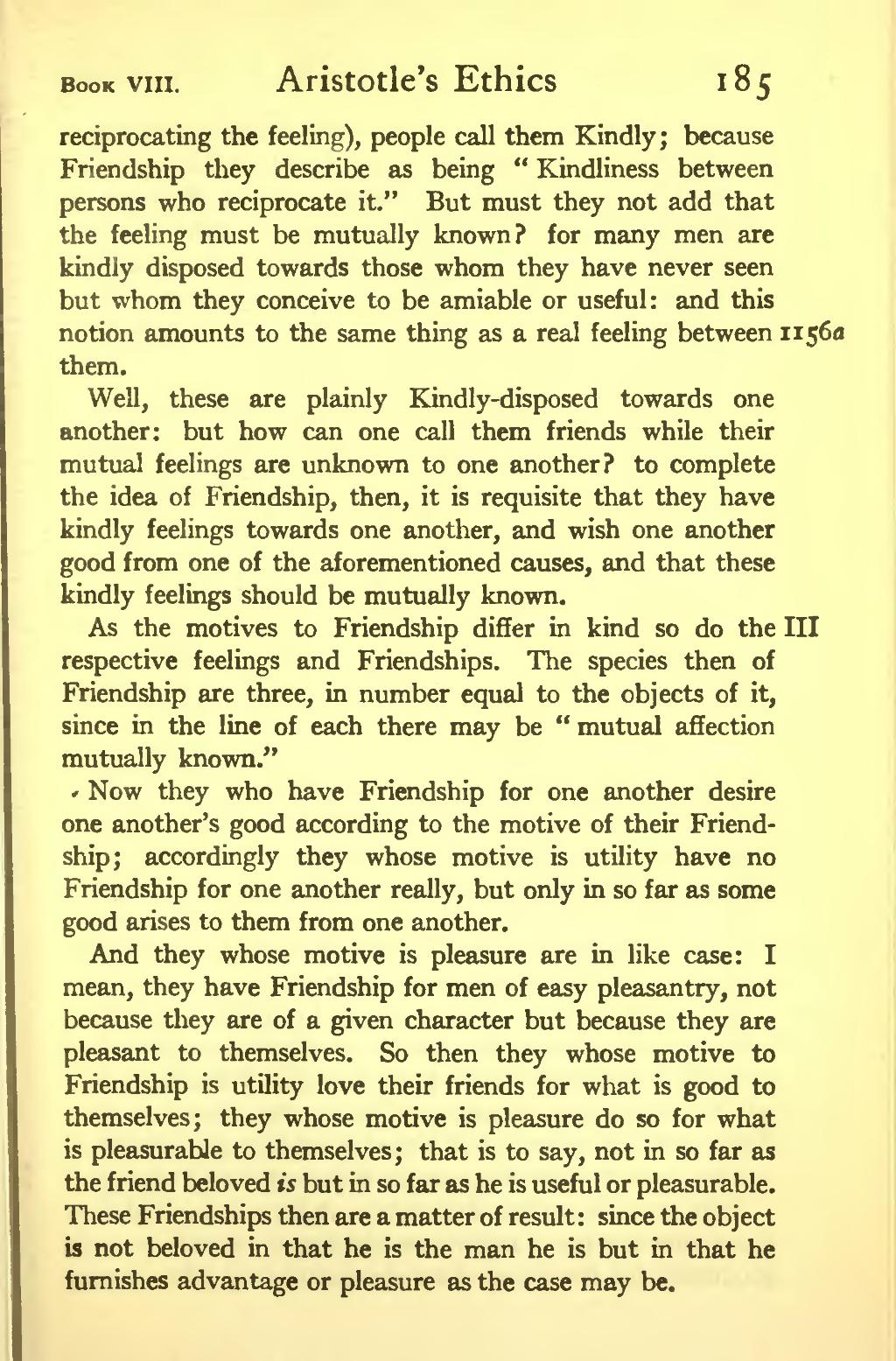reciprocating the feeling), people call them Kindly; because Friendship they describe as being “Kindliness between persons who reciprocate it.” But must they not add that the feeling must be mutually known? for many men are kindly disposed towards those whom they have never seen but whom they conceive to be amiable or useful: and this 1156a notion amounts to the same thing as a real feeling between them.
Well, these are plainly Kindly-disposed towards one another: but how can one call them friends while their mutual feelings are unknown to one another? to complete the idea of Friendship, then, it is requisite that they have kindly feelings towards one another, and wish one another good from one of the aforementioned causes, and that these kindly feelings should be mutually known.
III
As the motives to Friendship differ in kind so do the respective feelings and Friendships. The species then of Friendship are three, in number equal to the objects of it, since in the line of each there may be “mutual affection mutually known.”
Now they who have Friendship for one another desire one another's good according to the motive of their Friendship; accordingly they whose motive is utility have no Friendship for one another really, but only in so far as some good arises to them from one another.
And they whose motive is pleasure are in like case: I mean, they have Friendship for men of easy pleasantry, not because they are of a given character but because they are pleasant to themselves. So then they whose motive to Friendship is utility love their friends for what is good to themselves; they whose motive is pleasure do so for what is pleasurable to themselves; that is to say, not in so far as the friend beloved is but in so far as he is useful or pleasurable. These Friendships then are a matter of result: since the object is not beloved in that he is the man he is but in that he furnishes advantage or pleasure as the case may be.
